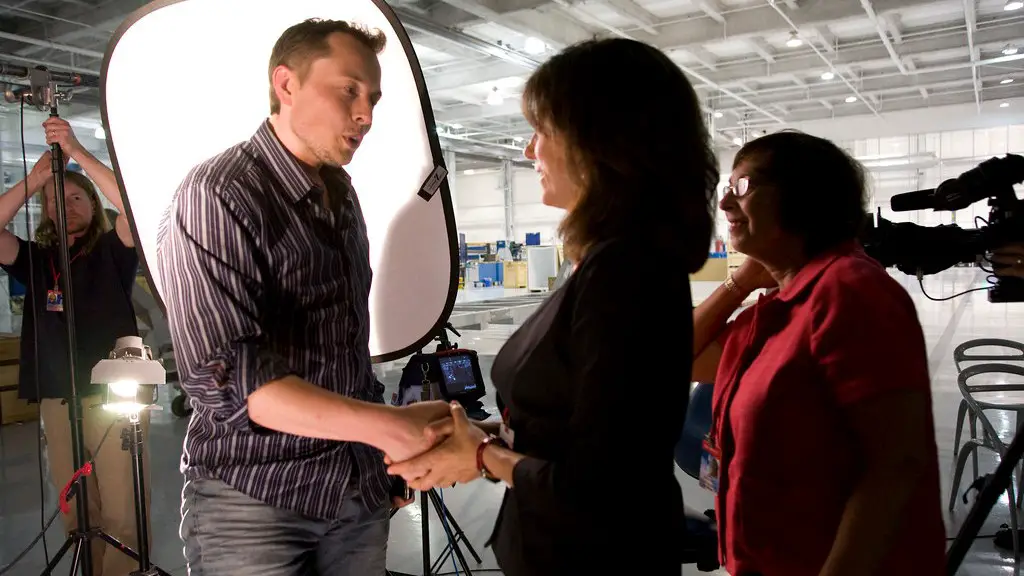What is Mark Zuckerberg’s Metaverse? It has become a widely discussed topic in recent years, and with good reason. Zuckerberg’s creation promises to revolutionize the way we experience the digital world. As the CEO of Facebook and the driving force behind Oculus VR, Mark Zuckerberg is no stranger to developing new technology that could have a large impact on the world. As such, the Metaverse has generated a great deal of interest and speculation about the possibilities it could bring.
At its core, the Metaverse is a virtual world that combines elements of the physical world with elements of the digital world. It blends in real-world places, people and events with virtual elements, allowing users to interact with them in a real-time environment. At its fullest potential, the Metaverse is set to be an open, ever-evolving, shared virtual world that could enable everyone to be connected to one another, regardless of their physical location.
In order to understand the Metaverse, it is helpful to first look at how it works. At the most basic level, it is a 3D environment created with computer-generated graphics and data. The Metaverse is populated by virtual characters, also known as avatars, which can be controlled by users. Avatars can chat, move around, and interact with each other in the virtual world, just as they would in a physical setting.
Users can create their own avatars and customize them with accessories, clothing, and other features. They can also use their avatars to explore the virtual world, interact with other users, and engage in activities such as shopping, playing games, and going on adventures.
The Metaverse could also be used to create virtual events, such as concerts and conferences. This could revolutionize the way we interact with each other and participate in activities when we are not able to gather in person. Moreover, the Metaverse could become a digital hub for businesses, allowing them to provide better customer service, launch virtual events and shows, and create new experiences for their customers.
Experts point to a variety of potential benefits that the Metaverse could provide. For one, it could provide a more immersive experience for users than traditional forms of media, allowing them to truly immerse themselves in the virtual world. Additionally, the Metaverse could provide a more interactive and engaging way for people to communicate and collaborate with one another. It could also open up new job opportunities for those who are comfortable with technology, or for those who are looking for an alternative to traditional forms of employment.
On the other hand, there are some potential drawbacks to the Metaverse. It is easy to imagine that the technology could be misused for malicious purposes, such as for cyberbullying or harassment. Additionally, the safety of users’ personal data and their privacy could be compromised if the Metaverse were not adequately secured against hackers and other malicious actors. These are legitimate concerns that should be carefully weighed before moving forward with its implementation.
Societal Impact of the Metaverse
The implementation of the Metaverse could have a significant impact on society as a whole. It could lead to a more connected, global world, allowing people to connect with each other in ways they were not previously able to. This could significantly reduce the physical and cultural distances between people and create a more equitable and inclusive society. The Metaverse could also spur innovation and create new business opportunities for entrepreneurs and small business owners.
On the other hand, the introduction of the Metaverse could lead to some unintended consequences, such as increasing social divisions between those who have access to the technology and those who do not. Additionally, it could lead to a reliance on technology for communication and socialization, which could have a serious impact on the health of people who spend too much time in the virtual world instead of engaging with the physical world.
The potential impacts of the Metaverse are vast and varied, and it is clear that the technology could revolutionize the way we interact and communicate with one another. While the potential benefits of the technology are undeniable, it is important to consider the potential risks involved as well in order to ensure that the technology is not abused.
Security Challenges of the Metaverse
As with any new technology, the introduction of the Metaverse is not without its security risks and complexities. Security will be paramount in the successful implementation and use of the technology, as it could be misused by individuals with malicious intent. It is thus essential that the Metaverse is designed with robust security measures built into its foundation in order to protect users from potential threats.
One way to address these security issues is through the use of blockchain technology. Blockchain has become a popular tool for enhancing security and protecting users’ privacy, and it could be used to build a secure foundation for the Metaverse. Additionally, security measures such as encryption, two-factor authentication, and biometric identification could also be employed to ensure the safety of users’ data.
In order to protect the virtual world, the Metaverse must also be designed with fairness in mind. Protocols must be in place to prevent individuals from exploiting the system and create a level playing field for all users. Rules and regulations, such as anti-spam laws, must also be implemented in order to discourage malicious behavior and ensure a safe and equitable experience for all users.
Conclusion
It is clear that the Metaverse has the potential to revolutionize the way we interact with one another and experience the digital world. However, in order to ensure a successful and secure implementation, a number of steps must be taken to mitigate the potential risks involved. It is thus essential that the Metaverse is carefully designed and implemented with security, fairness, and user privacy in mind.
Barriers to Entry
Despite the potential of the Metaverse, there are several barriers to entry that may prevent its widespread adoption. For one, the technology is still in its early stages and is not yet fully reliable or accessible. Additionally, the financial costs associated with accessing and using the Metaverse could be a barrier for some individuals. Moreover, it is unclear how the Metaverse will be regulated and governed, and this could also impact its adoption.
Another challenge for the Metaverse is the fear of the unknown. Many people may be unfamiliar or uncomfortable with this new technology, and this could be a major obstacle to its success. Lastly, the culture of the Metaverse must also be considered. The identity and values that people associate with the virtual world could significantly impact its success and must be carefully cultivated from the outset.
Privacy and Data Protection
Another key consideration for the Metaverse is privacy and data protection. As users will be uploading data and transmitting this data across the virtual world, it is essential that their data is protected and kept secure. The Metaverse must be equipped with robust security measures such as encryption, firewalls, and two-factor authentication to ensure that users’ data is safe and secure at all times.
Additionally, the Metaverse must be designed with privacy in mind. User data must be collected, stored, and managed carefully, and individuals must be given clear information about how their data is collected, used, and stored. Furthermore, users must be given the right to access and delete their data, and they must be able to control how their data is shared with third parties.
Usability and User Experience
The usability and user experience of the Metaverse must also be taken into consideration. The technology must be designed to be simple and easy to use, so that users are able to navigate the virtual world with relative ease. Furthermore, the user interface must be intuitive and engaging, allowing users to quickly access the features and functions they need. In order to ensure an enjoyable experience for all users, the Metaverse must also be regularly updated to address any issues that may arise.
The Metaverse has the potential to revolutionize the way we interact with one another, and it is essential that its implementation is carefully considered. In order to ensure its success, the technology must be designed with security, fairness, privacy, usability, and user experience in mind. With the right implementation, the Metaverse could become a powerful new tool for connecting people across the world in a shared virtual reality.

